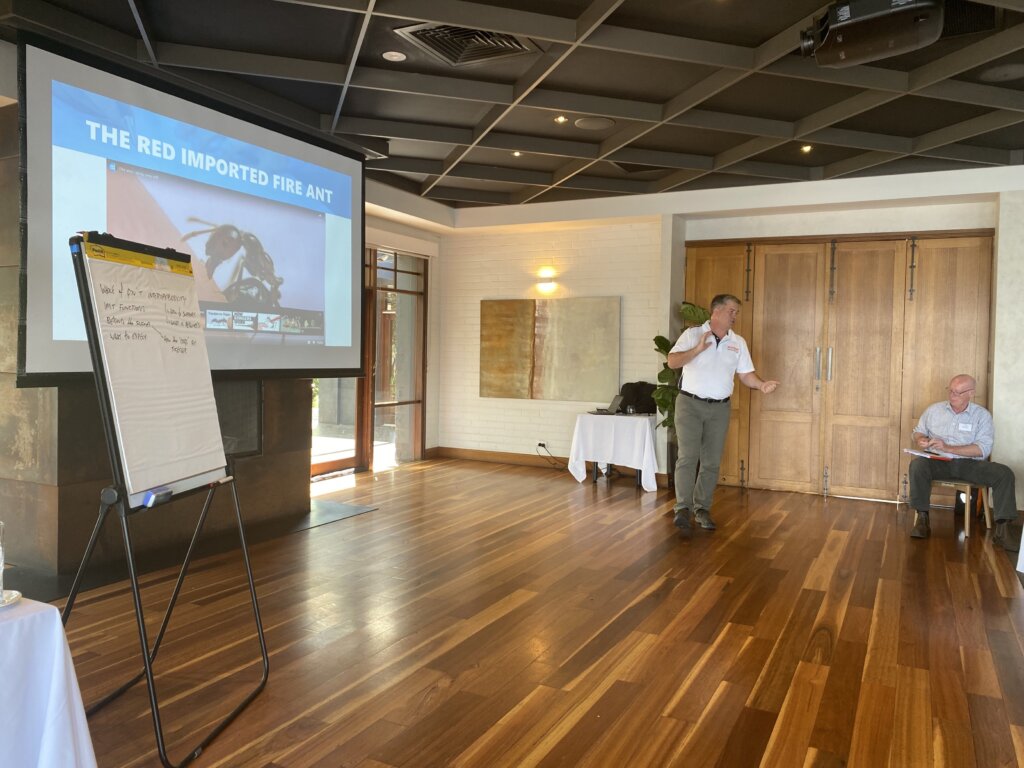In the realm of biosecurity and emergency management – preparedness and effective response are paramount. Since its successful launch in April 2023, the National Biosecurity Response Team (NBRT) Cadets program has reached across Australia, hosting four distinct workshops in four states and territories. These workshops are meticulously tailored to enhance the biosecurity emergency preparedness and response abilities of the attendees, contributing to the goal of a response-ready Australia.

The Cadet Program itself is specifically tailored to cultivate potential future candidates for the NBRT, offering comprehensive training and professional development opportunities. Beyond imparting foundational biosecurity emergency response skills and knowledge to individuals, the program also elevates the overall preparedness levels of biosecurity agencies nationwide.
During the recent NBRT Cadet workshop held in the nation’s capital, attendees engaged with an esteemed lineup of guest speakers, each bringing a wealth of experience and knowledge to the fore. Among those speakers was Bruce Hancocks, Director of Biosecurity and Agriculture Policy at the ACT Government who provided a comprehensive overview of the ACT Government’s Emergency Management Arrangements, shedding light on the territory’s biosecurity legislation. The presentation also featured the presence of Dr. Kyeelee Driver, Acting Chief Veterinary Officer of the ACT, who actively participated by addressing questions from the audience.

A significant highlight of the session was the explanation of the sequential events triggered in response to disease or pest incursions. The workshop delved into a major discussion concerning the ACT’s Biosecurity Act, which is presently undergoing a thorough review and is slated to be accessible in 2024.
Tony Scherl and Kirsten Tasker, Local biosecurity personnel with hands-on experience in biosecurity emergency response (BER), also featured as guest speakers and shared their motivations, insights into what they would do differently if they were starting over, key lessons they’ve learned, and how they prepare for deployment.
Kirsten, a dedicated biosecurity coordinator within the ACT government, recently demonstrated her expertise in international crisis response by leading a team in Canada during the wildfire’s emergency. With a wealth of experience, she has actively contributed to various biosecurity response control centers, including her recent involvement in managing the varroa mite response in NSW. An important lesson learned was understanding what to anticipate during deployment, particularly when dealing with an unfamiliar industry, pathogen, or pest at the heart of the response.
Tony, director of fire planning within the ACT government, discussed his role in managing the 2007 equine influenza outbreak. He established and supervised vaccination hubs in New South Wales equipped with cool rooms for vaccine storage. Tony highlighted the challenges of livestock standstill situations, citing an incident where attendees of a large equestrian event were stranded on-site for days. Creative solutions, like temporary pools and movie nights, were employed to keep them engaged. The response also emphasized the significance of community engagement, relying on word-of-mouth and strong relationships within horse communities to locate horses and owners effectively.
During the workshop, participants also had the opportunity to engage in a surveillance scenario-based activity, putting their newly acquired knowledge and skills to the test. This practical exercise enabled them to apply their training in a real-world context, enhancing their readiness to respond effectively to biosecurity incidents.
The two-day face-to-face workshop stands as a crucial component in fulfilling the program’s overarching objective of enhancing Australia’s biosecurity emergency preparedness and response capabilities. Facilitated by seasoned experts such as Craig Elliot and enriched by the invaluable perspectives of local biosecurity officers, this event has empowered participants with essential skills, knowledge, and networking opportunities vital for their professional growth. As the NBRT Cadet Program perseveres in cultivating the next generation of biosecurity leaders, it guarantees that the nation remains steadfast and ready to safeguard its environment, agriculture, and public health amidst various biosecurity challenges.
